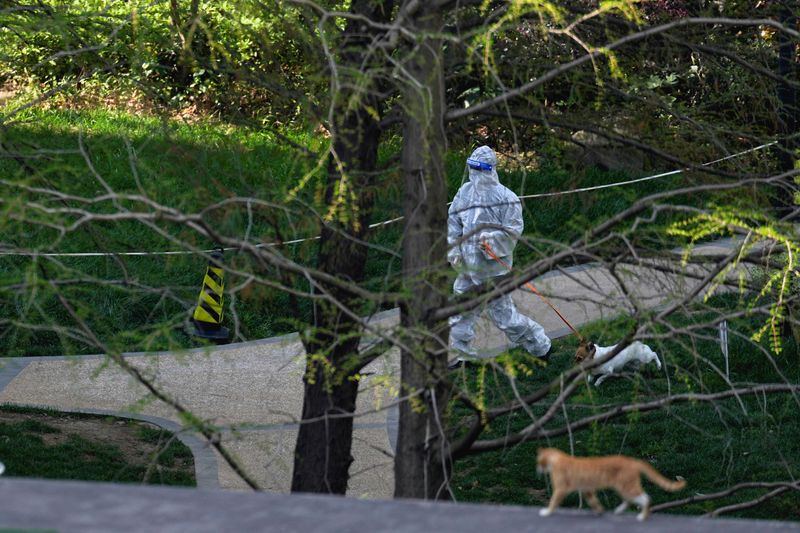
Shanghai has been separating COVID-positive children from their parents, citing epidemic prevention requirements, prompting widespread public outcry. More than 30 countries have written to China's Foreign Ministry urging the authorities not to take that step.
“We request that under no circumstances should parents and children be separated,” said a letter written by the French consulate in Shanghai that was addressed to the Shanghai foreign office on 31 March.
In a separate letter to the Chinese Foreign Ministry dated the same day, the British embassy in Beijing said it was concerned about “recent cases where local authorities have tried to separate minors who tested positive for COVID-19 from their parents” and asked for assurances that this would not happen to them diplomatic personnel.
The French consulate and the British embassy said they were writing the letters on behalf of other countries, including the states of the European Union and others such as Norway, Switzerland, Australia and New Zealand after learning of the difficulties caused by the closure of Shanghai, which the city carried out in two stages starting on December 28. march.
Asymptomatic or mild cases should be sent to “a specialized isolation setting with personnel who can communicate in English,” said the letter from the French consulate, a copy of which Reuters saw and verified with two sources.
Currently, asymptomatic cases are sent to centralized quarantine centers, some of which have been described as unhealthy and overcrowded.
The British embassy said there were concerns about conditions and lack of privacy in newly deployed mobile hospital facilities, adding that isolation in diplomatic housing was a “preferable solution consistent with our Vienna Convention privileges”, in the letter seen by Reuters and verified by two sources.

“The British Consulate General in Shanghai has been raising its concerns about various aspects of current COVID policies in relation to all British citizens in China, with the relevant Chinese authorities,” a consulate spokesman said.
The French consulate refused to comment on the letter. The Australian Consulate General in Shanghai, which was quoted in the letters, also declined to comment, but said it had been collaborating with local authorities on COVID-19 restrictions.
The United States did not appear as a signatory to either letter. However, the US Consul General in the city, Jim Heller, told members of a private chat group for US citizens that the consulate had highlighted many of the concerns raised in the European charter with the local government.
A US embassy spokesman declined to comment on Heller's comments, but said that the way embassy staff were treated in the COVID pandemic was “the perfect job” and that the embassy was engaging in a COVID-related policy with the Chinese government.
Other countries, such as Norway, Switzerland and New Zealand, which were mentioned in the letters, did not respond to requests for comment. The Chinese Foreign Ministry also did not respond to a request for comment.
On Monday, Shanghai official Wu Qianyu told a news conference that children could be accompanied by their parents if parents were also infected, but separated if they were not, adding that policies were still being refined.
China sent the military and thousands of health workers to Shanghai to help test all of its 26 million residents for COVID-19 as cases continued to rise on Monday amid the city's lockdown, in one of the largest public health responses in the country's history.
KEEP READING:
Últimas Noticias
Debanhi Escobar: they secured the motel where she was found lifeless in a cistern
Members of the Specialized Prosecutor's Office in Nuevo León secured the Nueva Castilla Motel as part of the investigations into the case

The oldest person in the world died at the age of 119
Kane Tanaka lived in Japan. She was born six months earlier than George Orwell, the same year that the Wright brothers first flew, and Marie Curie became the first woman to win a Nobel Prize

Macabre find in CDMX: they left a body bagged and tied in a taxi
The body was left in the back seats of the car. It was covered with black bags and tied with industrial tape
The eagles of America will face Manchester City in a duel of legends. Here are the details
The top Mexican football champion will play a match with Pep Guardiola's squad in the Lone Star Cup

Why is it good to bring dogs out to know the world when they are puppies
A so-called protection against the spread of diseases threatens the integral development of dogs



